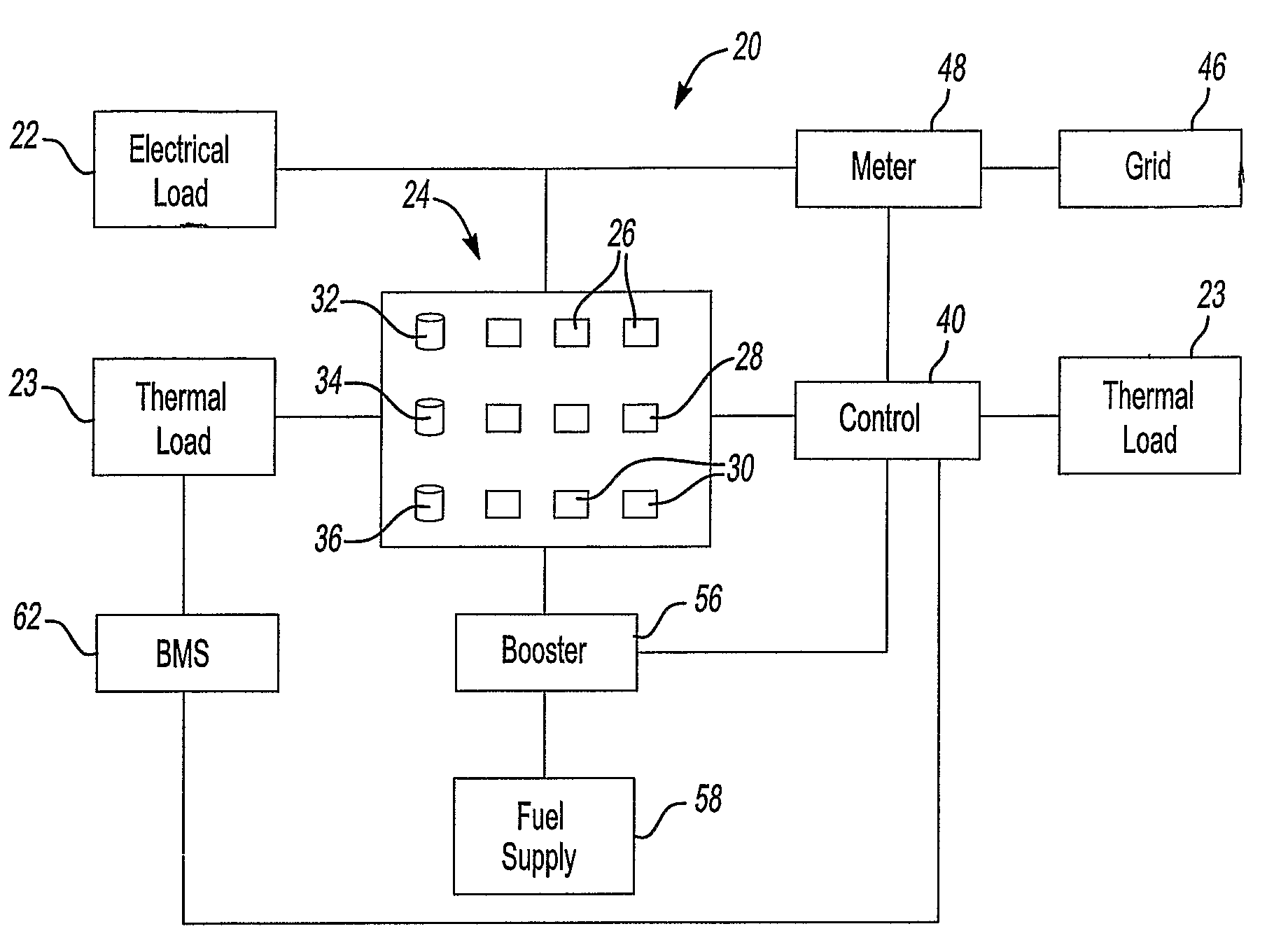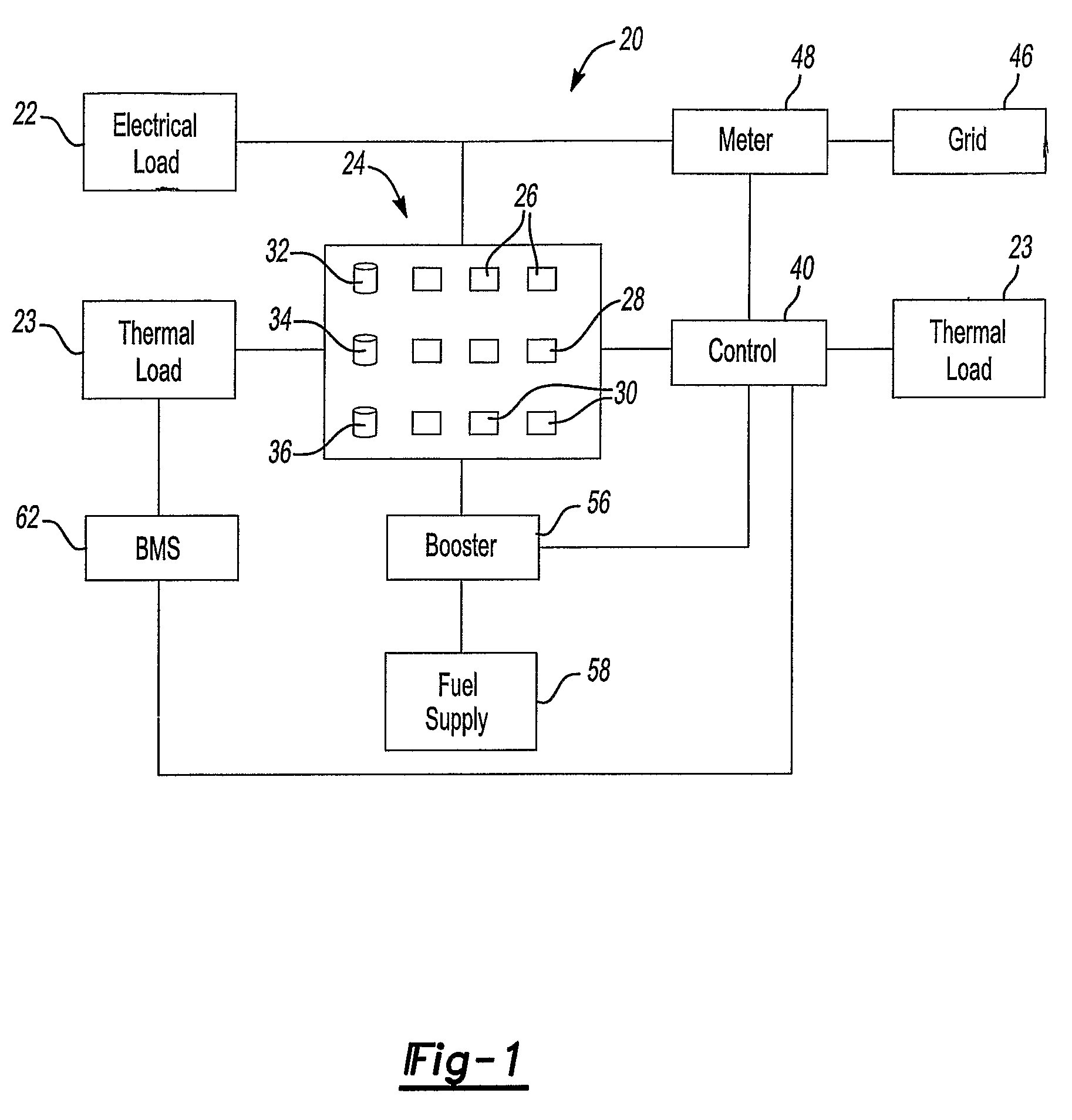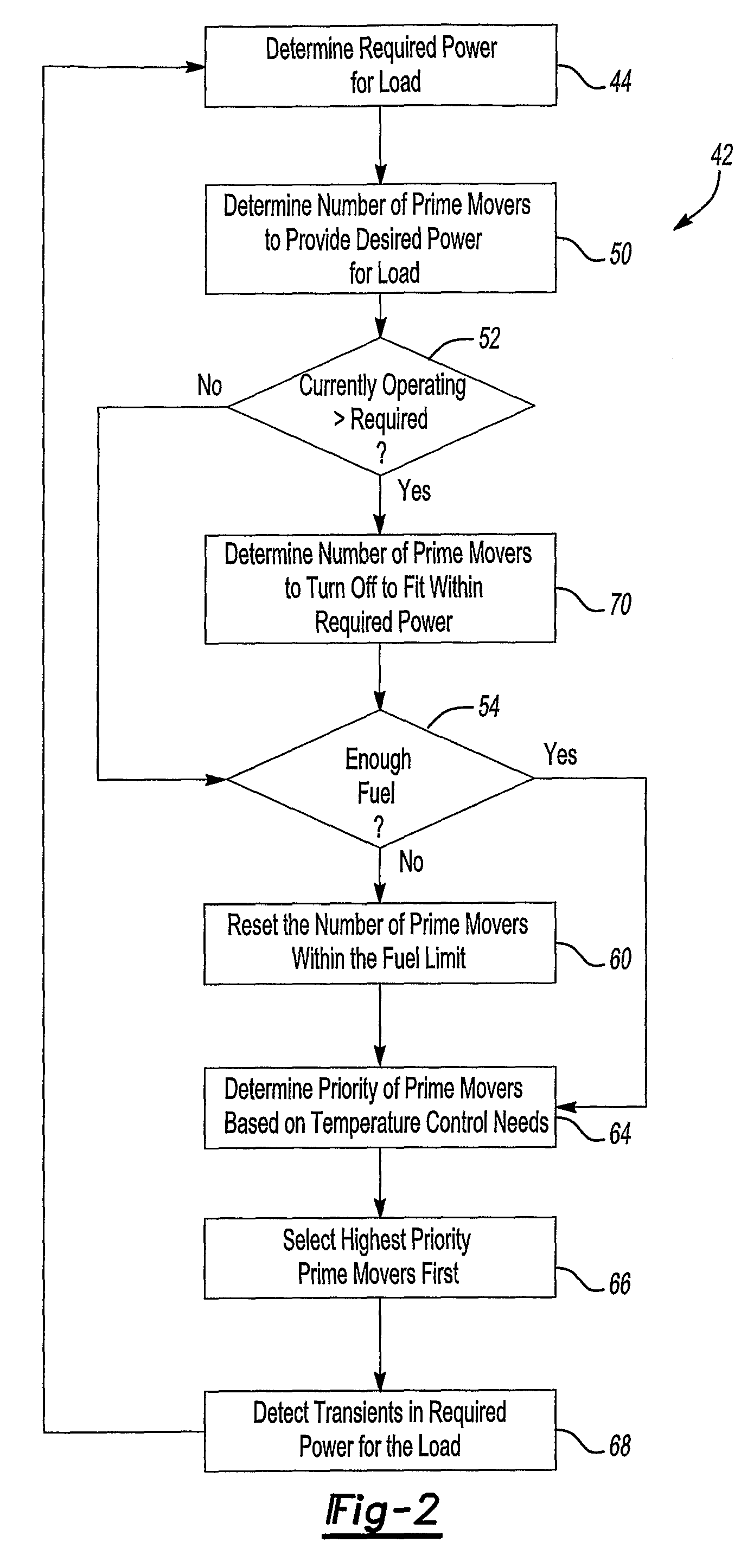On-site power plant control including adaptive response to transient load requirements
a technology of adaptive response and power plant, applied in the direction of machine/engine, process and machine control, instruments, etc., can solve the problems of increasing utility demand charges, unable to heat or cool the facility, and controlling the operation of such on-site power plants, so as to avoid tripping the relay
- Summary
- Abstract
- Description
- Claims
- Application Information
AI Technical Summary
Benefits of technology
Problems solved by technology
Method used
Image
Examples
Embodiment Construction
[0018]FIG. 1 schematically shows a system 20 for providing power to a facility such as a building. The facility is schematically shown as an electrical load 22 and a thermal load 23 in the illustration. An on-site power plant 24 includes components arranged in a known manner for generating power for use by the electrical load 22 and to provide temperature control for the thermal load 23. In the illustrated example, the on-site power plant 24 includes a plurality of prime movers for generating power. In one example, the prime movers comprise microturbines.
[0019]In the illustrated example, the prime movers are grouped such that there are a first plurality of prime movers 26, a second plurality of prime movers 28 and a third plurality of prime movers 30. Each plurality of prime movers is associated with a cogeneration unit in a known manner. The cogeneration unit 32 is associated with the plurality of prime movers 26. Another cogeneration unit 34 is associated with the prime movers 28 ...
PUM
 Login to View More
Login to View More Abstract
Description
Claims
Application Information
 Login to View More
Login to View More - R&D
- Intellectual Property
- Life Sciences
- Materials
- Tech Scout
- Unparalleled Data Quality
- Higher Quality Content
- 60% Fewer Hallucinations
Browse by: Latest US Patents, China's latest patents, Technical Efficacy Thesaurus, Application Domain, Technology Topic, Popular Technical Reports.
© 2025 PatSnap. All rights reserved.Legal|Privacy policy|Modern Slavery Act Transparency Statement|Sitemap|About US| Contact US: help@patsnap.com



